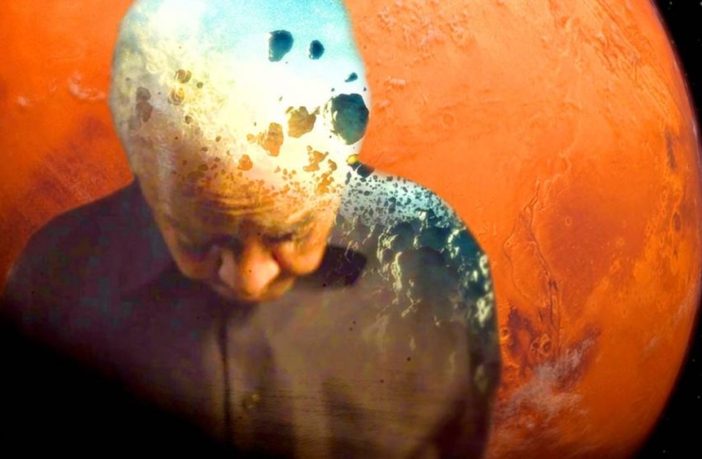The new documentary Going to Mars: The Nikki Giovanni Project chronicles the life of one of the greatest storytellers of our time in the only way it should be done: through her own words. “The title comes from one of Nikki’s poems, Quilting the Black-eyed Pea, (We’re Going to Mars),” directors Joe Brewster and Michèle Stephenson tell EBONY. “Throughout the film, we return to different stanzas from that poem that highlight and celebrate the Black experience in America while also unapologetically stating that the moral compass of this country has always been the Black community and its movement to make America a more just place.”
Since her first book, Black Feeling, Black Talk/Black Judgement, self-published in 1968, Giovanni—EBONY magazine’s “Woman of the Year” in 1970—has fiercely and unapologetically shared her thoughts on race, gender, love and Black America. In Going to Mars, the directors went on a seven-year production odyssey with the personal poet to aptly capture her story through the many interviews and lectures she has recorded over six decades, as well as through direct access to the woman herself. “She allowed us deep access to her home and family. With regard to our storytelling process, Ms. Giovanni insisted on not getting involved,” they share. “She explained and supported our independent creative process.”
But that doesn’t mean we’re getting the full Giovanni experience, as the artist chooses what she will and will not share. “You want something that I’m clearly not ever going to give you or anybody else, so you can find another question,” she declares to an inquiry deemed too probing.
“While she was very clear about her boundaries and what parts of her life she was willing to discuss, as creatives, we had extensive access to so many elements of her voice and work,” the directorial duo reveals. “Her poetry and work that spans over 50 years, which includes deeply personal and vulnerable stories and poems pulled directly from her lived experience to big-picture affirmations about her love for her Black community…the historical archive of all of Ms. Giovanni’s interviews and speeches that also span decades—including the iconic taped conversation between her and James Baldwin, which provided a glimpse into how her mind works—and her speeches from those years also surprisingly revealed a woman with stand-up comedian skills.”
Here are three more things we loved about Going to Mars: The Nikki Giovanni Project, premiering January 8, 2024, on HBO.
Giovanni’s powerful words are the directors’ lens.
To explore her life and the turbulent historical periods she’s lived through, directors share moments of her life as she and executive producer Taraji P. Henson recite her poetry. That includes Giovanni’s thoughts on the brutal murder of Emmett Till in 1955, the killing of Dr. Martin Luther King Jr. in 1968 and the Black Lives Matter movement of today. State the directors, “What sticks the most and is most relevant to us as artists is the unapologetic path Ms. Giovanni has forged for herself. It is our North Star as we navigate these landscapes in the cultural space and what it means to be true to ourselves and maintain an independent story and vision in the stories we tell when commercial and other pressures that might lean on stereotypes surround us.”
More of Giovanni’s personal life is revealed.
Giovanni is fiercely protective of the image she shares with the world, but in Going to Mars, we see snippets of the life she has created, like her love of gardening. In one clip, she addresses a room of Black women decked in white and red while wearing her Delta Sigma Theta Sorority Inc. sweater. Giovanni was made an honorary member of the sorority in 2006. We also get to see her at home with her partner, partner Virginia Fowler, who she has been with for more than three decades, and interacting with her son Thomas. “The layering of her current day performances we were able to capture on tour with her and the deeply intimate verite scenes we covered in her home and on the road, provided that additional look into her life and work,” Brewster and Stephenson state. “We had a huge amount of material to work with that came directly from her voice and experience that did not need an intermediary voice or expert interview.”
I’m a big fan of Black women because in our blood is space travel. We’ve come from a known, through an unknown to an unknown.
-Nikki Giovanni in Going to Mars: The Nikki Giovanni Project
Going to Mars solidifies Giovanni as an afrofuturist.
The documentary is not a complete biography of Giovanni’s life. Instead, it gives us morsels that only leave us wanting more from the octogenarian, especially her thoughts on Afrofuturism. As she shared in her poem Quilting the Black-Eyed Pea (We’re Going to Mars), space is the next frontier for Black people to escape prejudice, sexism and hate. And Giovanni yearns to be there herself, becoming a weightless entity that could linger in the atmosphere for eternity. “Mars and space have always fascinated Ms. Giovanni and we wanted to honor that fascination and her unique way of viewing the world and our role in it,” the directors declare. “From a cinematic language perspective, the notion of Mars and space and the Middle Passage become powerful metaphors for us to also work with the form of storytelling. Some call it Afrofuturism, but it is about deeply honoring the past, understanding our common history and how far we have come to inform how we move forward and pass our knowledge and narratives to the next generation.”



